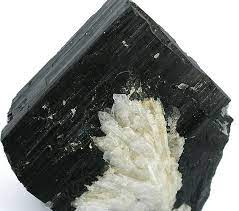
ISLAMABAD, Nov 08 (INP-WealthPK): An industrial revolution can be brought about in Pakistan through the indigenous processing of twin metals – niobium and tantalum. The country spends a lot of hard-earned foreign exchange on the import of processed forms or industrial items for use or to produce medical and industrial items, reports WealthPK.
In a discussion with WealthPK about the true potential and indigenous processing of tantalum and niobium, Principal Geologist at the Global Mining Company, member of National Council for Marble & Granite and Minerals, and former general manager of geology at the Pakistan Mineral Development Corporation Muhammad Yaqub Shah said, “It is a revolutionary topic for Pakistan’s national interest just like the backbone of industry and profit-earning.”
Niobium (former name columbite) and Tantalum are twin transitional metals. They are found together in a number of minerals but the most common of them are Coltan, Pyrochlore, etc. It is the 4th extremely heat-resistant metallic element with a melting point of 5,463°F (2,996°C). No alternative mineral of tantalum has been discovered yet. Its exceptional quality is to store more charge per gram than all other comparable metals. So, it is largely used to produce high-quality capacitors and resistors.
Globally, Brazil, Canada, and Australia are the leading producers and exporters. It is also actively mined in Congo, Burundi, Ethiopia, Mozambique, Nigeria, Rwanda, Uganda, etc. It is also found there in placers.
It is considered viable if found in concentration of 0.7gms ppm. According to Ultra Trace Laboratories, Australia’s report of 1,373 Niobium samples from Ishkoman valley in Pakistan, its concentration ranged from 1ppm to 350ppm. Out of the total, 1,226 samples showed niobium concentration lower than 40ppm. Amongst the remaining 147 samples, 15 were such that occur in the cluster form located in the exclusive geological environment symbolized for the occurrence of Niobium-Tantalum and Tin-Tungsten deposits globally.
Moreover, Yaqoob said it was abundantly found in alkaline/igneous rock formations in Gilgit-Baltistan (GB), Khyber Pakhtunkhwa, Balochistan, and Sindh. It can be found from placers, but the analysis is needed. If its processing starts in Pakistan, it is natural that the other countries will become our trade partners concerning these important twin metals.”
Tantalum is widely used for many industrial purposes i.e., semiconductors, medical equipment, anticorrosive against a number of acids, electronic industry, aerospace, defense, furnaces, electronics, GPS systems, airbag mechanisms, antilock braking systems, and jewellery due to wide capacitance and smaller size. It is available in different processed forms for use i.e., strip, foil, tube, sinter bar, powder, oxide, rod/wire, sheet/plate, grain stabilized, sputtering target.
The other twin — Niobium — is a superconductor and a highly prized industrial element. It is the best material to improve the strength of alloys used to produce high-strength stainless steel and other metals used in the production of jet engines, high-pressure pipelines, superconducting magnets, brake discs, bridges, rockets, oil/gas pipelines, beams, and girders for buildings and oil rigs, medical implants, etc.
According to international trade statistics, Pakistan’s imports of Niobium, Tantalum, Vanadium, and Zirconium ore (commodity group 2615) increased from 2006 to 2020 and China remained the top trading partner with a share of 100% (about US$99K)
In 2020, being the 25th largest exporter of Niobium, Tantalum, Vanadium, and Zirconium ore (commodity group 2615), Pakistan exported the same ores to China worth US$8.08m. It was the most exported product from Pakistan then.
During the same year, Pakistan imported the same commodity group primarily from the United Kingdom and China worth US$196K and US$97.2K respectively. It was a larger quantity than in 2019 when it was worth US$1,59K to the United Kingdom and worth US$81.4K to China.
Mechanical Engineer Faizan ul Haq Mirza, member of the Surgical Committee of Sialkot Chamber of Commerce and Industry, Curriculum Developer and Master Trainer with TEVTA, NAVTTC, GIZ Consultants Germany, and owner and CEO of Suddle Group of Industries, Sialkot in a discussion with WealthPK said, “We are the first manufacturers of artificial hip joint in Pakistan. Being highly rust and alkaline-resistant, we import Stainless Steel Alloy 316-L for manufacture of implants and artificial body joints. Import of such parts manufactured by using Niobium-Tantalum twin is the safest but comparatively expensive. It is also not easy to import such metals for local production.
The biocompatibility of tantalum is considered perfect not to trigger adverse immunological responses when exposed to bodily fluids. So, it is ideal for pairing with living tissues in prosthetics and medical implants. Unalloyed niobium is highly biocompatible as titanium. It is used in some implants, i.e., in newly designed stents, between 75% and 95% niobium is used.
“Indigenous availability of such metals can make it easy for us to produce low-cost artificial body parts and we can export them as well.”
Tajamul Hussain Sachal, PRO to the Sialkot Chamber of Commerce and Industry, told WealthPK that mostly the traders of salt lamps import bulbs and conductors from South Korea because the wires used in them are made from tantalum and they last longer. Their domestic production can help us save a lot of foreign exchange which will also lower the cost of production.
In a discussion with WealthPK about the production of conductors, capacitors from the locally processed tantalum, owner and GM Pearl Cables and Conductors, Karachi, Arzoo Ahmed said, “We produce tantalum conductors and sometimes use the locally processed material of international standard, but a regular and abundant supply is needed. Tantalum capacitors range from picofarads (pF) to microfarads (mF) and can handle much larger electric currents compared to aluminum. They are mostly used in medical devices, laptops, desktops, cellphones, and strategic equipment. They have made it possible to miniaturize electrical devices and other parts. Niobium is not mostly used but awareness of traders and manufacturers about the local availability will obviously be welcomed to avoid imports.”


































































































